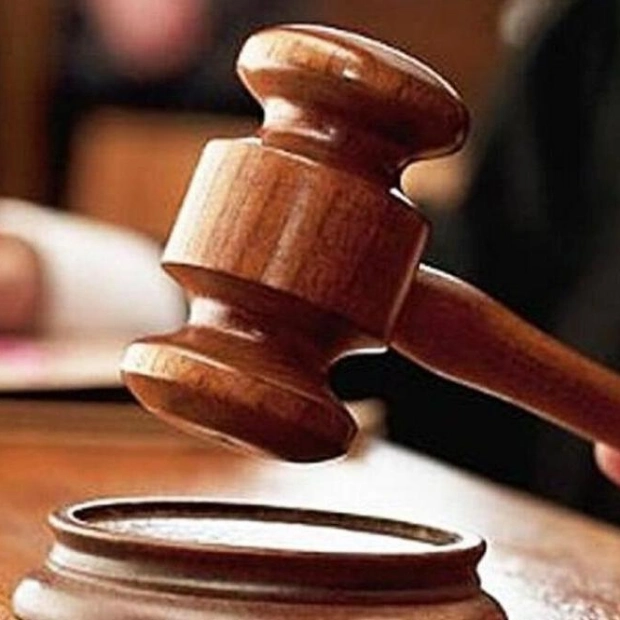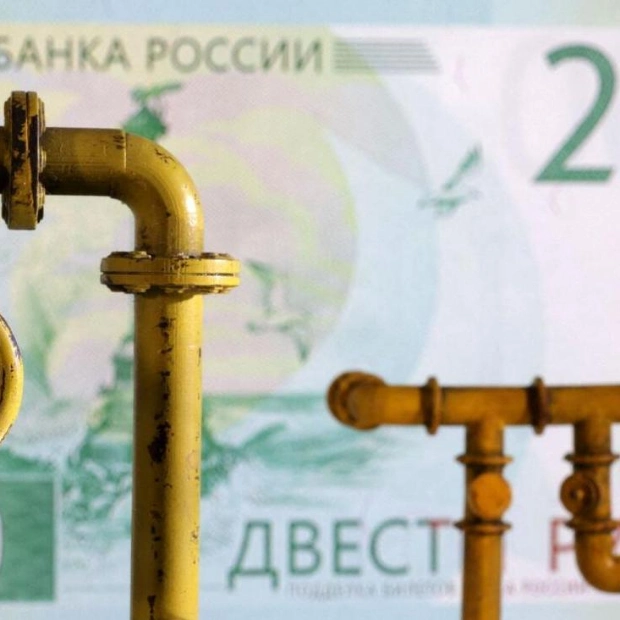Crowds assemble outside a collapsed structure, working to rescue a man trapped beneath the debris after an Israeli bombardment in the Saftawi district of Jabalia, located in the northern Gaza Strip, on October 15, 2024. — AFP
Israeli military operations claimed the lives of at least 50 Palestinians across the Gaza Strip as Israeli forces intensified their pressure around Jabalia in the north on Tuesday, engaging in intense clashes with Hamas-led fighters. Palestinian health authorities reported that at least 17 individuals were killed by Israeli fire near Al Falouja in Jabalia, the largest of Gaza's eight historic refugee camps, while another 10 were killed in Bani Suhaila in eastern Khan Younis when an Israeli missile hit a house. Earlier on Tuesday, an Israeli airstrike obliterated three houses in the Sabra suburb of Gaza City, and local emergency services recovered two bodies from the site, with the search ongoing for 12 others believed to have been in the houses during the strike. Additionally, eight more were killed when a house was struck in the Nuseirat camp in central Gaza.
Later on Tuesday, the Gaza health ministry reported that a doctor was killed while attempting to assist those injured by Israeli strikes in Al Falouja in Jabalia. It also noted that several medics were wounded when their ambulance came under Israeli fire in the northern and southern Gaza Strip. Jabalia has been the focal point of an Israeli offensive for over ten days, with troops re-entering areas of the north that experienced heavy bombardment in the early stages of the year-long conflict. This operation has sparked concerns among Palestinians and UN agencies, who fear Israel aims to evacuate residents from the densely populated northern enclave, a claim Israel denies. Residents report that Israeli forces have destroyed dozens of houses in the past ten days.
The United Nations human rights office stated on Tuesday that the Israeli military appeared to be 'cutting off North Gaza completely from the rest of the Gaza Strip.' 'In the midst of ongoing intense hostilities and evacuation orders in northern Gaza, families are facing unimaginable fear, loss of loved ones, confusion, and exhaustion. People must be able to flee safely, without facing further danger,' said Adrian Zimmerman, ICRC Gaza head of sub-delegation, in a statement. 'Many, including the sick and disabled, cannot leave, and they remain protected under international humanitarian law – all possible precautions must be taken to ensure they remain unharmed. Every person displaced has the right to return home in safety,' he added.
The Israeli military's humanitarian unit, Cogat, which oversees aid and commercial shipments to Gaza, stated on Tuesday that the operations in Jabalia were targeting terrorist infrastructure and operatives embedded within civilian areas. It also mentioned that it was facilitating humanitarian, particularly medical aid, to residents. Hamas denies embedding its operatives among civilians. The Israeli military has now encircled the Jabalia camp and deployed tanks into nearby Beit Lahiya and Beit Hanoun towns, with the stated objective of eliminating Hamas fighters attempting to regroup there. The Israeli military has instructed residents to leave their homes and move to safety in southern Gaza. Palestinian and UN officials assert that there is no safe place in Gaza.
Hamas' armed wing reported that fighters were engaged in fierce battles with Israeli forces in and around Jabalia. Zimmerman also called for the protection of health facilities in the north, stating that hospitals there were struggling to provide medical services. Gaza's health ministry reported that the army ordered the three hospitals operating there to evacuate, but medical staffers vowed to continue their services despite being overwhelmed by the increasing number of casualties. Cogat stated in recent days that it had facilitated the transfer of 33 patients, medical staff, and accompanying personnel from the Kamal Adwan Hospital in the north to functioning facilities elsewhere in Gaza. It also provided 68,650 liters of fuel to hospitals and coordinated the delivery of 800 blood transfusion units.
Ismail Al Thawabta, the director of the Hamas-run Gaza government media office, accused Israel of attempting to create a misleading impression and stated that its forces had been preventing ambulance and civil emergency teams from recovering the bodies of dozens of people from the streets. 'Israel aims to completely destroy the health system and hospitals,' Thawabta said, adding that Israel's military has maintained a siege on the region for more than 170 consecutive days, closing all humanitarian access points. On Monday, UN Secretary-General Antonio Guterres condemned the high level of civilian casualties in northern Gaza. The northern part of Gaza is home to well over half of the territory's 2.3 million people, and hundreds of thousands of residents were forced to flee their homes during the heavy bombing in the initial phase of Israel's assault on the territory. Approximately 400,000 people remained, according to United Nations estimates.






